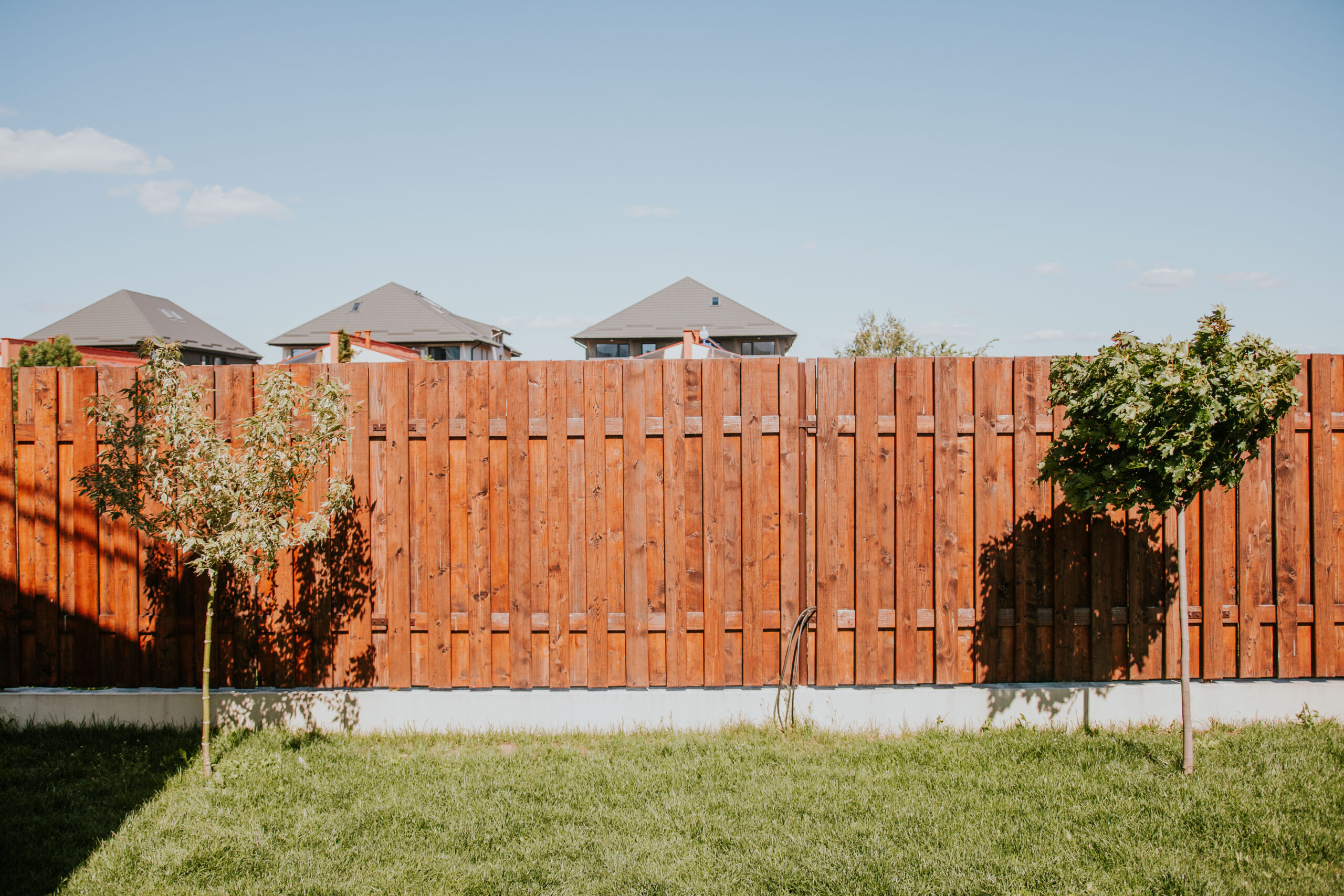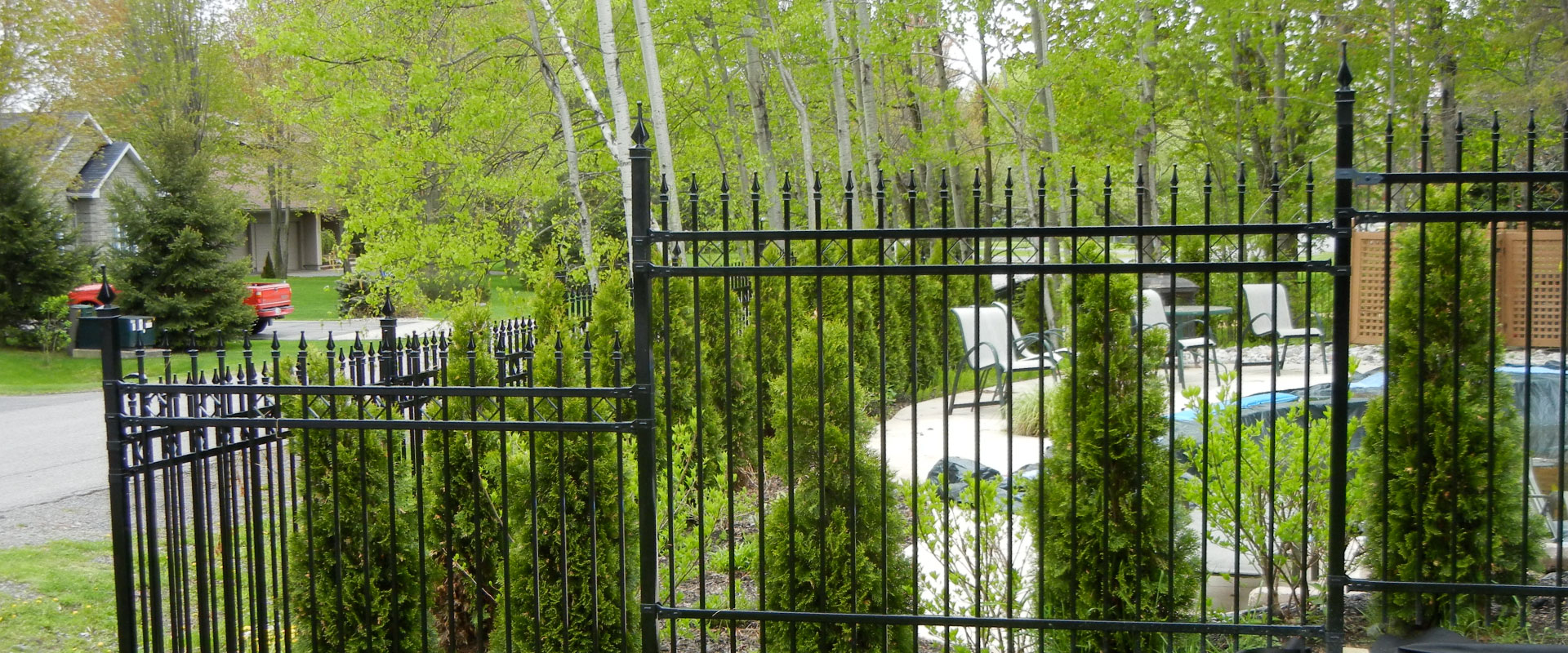All Categories
Featured

Plastic fencings are understood for their low-maintenance appeal and long-lasting sturdiness, making them an outstanding choice for home owners seeking a stylish yet functional boundary for their property. Unlike wood, vinyl does not need constant paint or securing. Simply like any kind of exterior framework, vinyl fencings still need routine cleaning to keep them looking immaculate and to expand their life expectancy. Here are a few of the most effective practices for cleaning your plastic fencing.
- Regular Dusting and Sweeping. Routine care is important to stop particles from constructing up on your plastic fencing. The simplest method to maintain your fencing is by routinely brushing up or dusting off any kind of dust, leaves, or other debris that accumulate.
- Light Soap and Water for Regimen Cleaning. For routine maintenance, a basic soap and water service works wonders. It's a very easy, reliable means to cleanse your plastic fence without causing damage. Below's exactly how to cleanse your vinyl fencing with soap and water:
Step 1: Mix a mild cleaning agent, such as recipe soap, with warm water in a pail. Goal for around 1/4 cup of soap for every gallon of water. Step 2: Dip a soft fabric, sponge, or non-abrasive brush right into the option and carefully scrub the surface of the fencing. Pay attention to dirt accumulation on corners, sides, and low-lying areas where grime might accumulate. Action 3: After cleaning the surface, wash it completely with a garden pipe to eliminate all soap residue. This approach is wonderful for light dust and grime and can be done every few months to preserve the appearance of your fence.
- Make Use Of a Power Washer for Stubborn Stains. If you have actually overlooked your vinyl fence for a while, or if it has built-up gunk, mold and mildew, or mildew, a power washing machine can be an effective tool for deep cleansing. Nonetheless, you need to utilize the right pressure to prevent damaging the plastic. Right here's just how to safely power wash your vinyl fence:

Step 1: Set the power washer to a low-pressure setting, preferably around 1,500-2,000 psi. High pressure can damage the plastic surface area or trigger it to split. Step 2: Stand a minimum of 2 feet far from the fencing and begin splashing from the top down. This aids stop streaks and makes sure that dirt is washed off effectively. Action 3: Move the power washing machine nozzle in a side-to-side sweeping movement, and be certain to maintain the water stress regular. Step 4: Rinse the entire fence extensively with water to remove dust and detergent residue. Power washing is an exceptional alternative for big fencings or for those with persistent dust and stains that soap and water can not remove.
- Eliminating Mold And Mildew and Mold. In shaded or damp locations, mold and mildew and mold prevail troubles for plastic fencings. To fight this, you can make use of an option of vinegar or bleach to eliminate the growth and decontaminate. Right here's just how to deal with mold and mold on your fencing:

Action 1: Mix one mug of white vinegar with a gallon of warm water. Mix 1/4 cup of bleach with a gallon of water. Step 2: Apply the remedy to the influenced locations using a soft cloth or sponge. Let it rest for about 10-15 mins. Action 3: Rub the areas with a non-abrasive brush to lift the mold and mildew or mold off the surface. Step 4: Rinse extensively to remove any cleaning remedy and debris. If you pick to utilize bleach, be careful not to splash it on neighboring plants or products, as it might create damage or discoloration.
- Vinyl Fence Cleaners for Challenging Discolorations. For hard, persistent spots like marker, oil, or tar residue, you can utilize a specialized plastic fence cleaner. These products are made to safely clean vinyl without creating damages. Make sure to follow the item's directions for best outcomes, and examination it on a tiny, low-profile location of the fencing first.
- Protecting Against Future Dirt and Spots. While cleansing is very important, stopping future discolorations and accumulation can make your upkeep routine a lot easier. Think about these ideas for long-term maintenance:
Trim greenery: Thick plants, vines, or bushes can trap dampness against your plastic fencing, causing mold and mildew growth. Trim neighboring plants to make sure the fence stays dry and clean. Seal voids and splits: Evaluate your fence consistently for splits or gaps, and seal any kind of that you locate to maintain dirt and water from going into the fence structure. Mount a protective layer: Some house owners apply vinyl-safe protective coatings to their fences. These finishings can work as an obstacle against dust, UV rays, and water, minimizing the frequency of deep cleaning needed. 7. Expert Cleaning. If you're uncertain about cleaning your fence yourself, or if it needs a deep clean, take into consideration working with a specialist. Numerous cleaning companies use fence cleaning services and have the equipment and experience to tackle hard spots without damaging your fencing. They can likewise take care of big or high fencings that may be tough to clean by yourself.
Conclusion. Vinyl fences are low-maintenance, however they still require regular like keep them looking their ideal. By utilizing moderate soap and water for routine cleansing, utilizing a power washing machine for stubborn dirt, and dealing with mold and mildew or mildew promptly, you can guarantee your plastic fence stays pristine. Regular cleaning, along with preventive procedures, will lengthen the life of your fence and maintain it improving the elegance and safety of your residential property for several years to find.
Latest Posts
Check Out Affordable Auto Repairs with Montclare’s Exclusive Service Specials
Published May 29, 25
1 min read
Why Regular Vehicle Maintenance at Montclare Auto Repair Reduces Costs
Published May 27, 25
1 min read
Uncover Top Auto Repair Services from Montclare Auto Repair – Expert Care for Your Vehicle
Published May 27, 25
1 min read
More
Latest Posts
Check Out Affordable Auto Repairs with Montclare’s Exclusive Service Specials
Published May 29, 25
1 min read
Why Regular Vehicle Maintenance at Montclare Auto Repair Reduces Costs
Published May 27, 25
1 min read
Uncover Top Auto Repair Services from Montclare Auto Repair – Expert Care for Your Vehicle
Published May 27, 25
1 min read